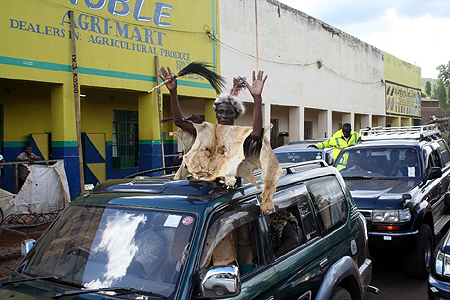 MINISTER of Finance and National Planning Situmbeko Musokotwane has attributed the cumulative depreciation of the Kwacha by 73 per cent since June last year to short-term and fundamental factors like political uncertainty and re-emergence of pricing of local goods and services in dollars.
MINISTER of Finance and National Planning Situmbeko Musokotwane has attributed the cumulative depreciation of the Kwacha by 73 per cent since June last year to short-term and fundamental factors like political uncertainty and re-emergence of pricing of local goods and services in dollars.
The local currency has depreciated by about 17.1 per cent since January this year.
Dr Musokotwane told Parliament in a ministerial statement yesterday that the depreciation of the local currency did not mean that it had performed poorly as it competed favourably with other currencies like the British pound and the South African rand.
“Against the sterling pound for example, the Kwacha had depreciated by only 11 per cent since the end of June 2008. Against the South African rand, the Kwacha depreciation was only 26 per cent,” he said.
The minister said the two international currencies could have been about the same price they fetched against the Kwacha if measured by February last year.
He said Zambian importers often needed other foreign currencies apart of the United States dollar.
Dr Musokotwane said a lot had to do with the foreign currency individual traders wanted to deal with.
Commodity imports and exports that are invoiced in the dollar, like petroleum, attracted higher amounts of Kwacha equivalents which may not be the same for goods purchased in pounds and rand.
“In other words, when we consider the depreciation of the Kwacha against a hypothetical average exchange rate that reflects all our relevant trading currencies, it becomes clear that the Kwacha has not done so badly,” he said.
Dr Muskotwane said other than the re-emergence of dollarisation, fundamental factors like the change in investors’ sentiments resulting from the global financial crisis also contributed to the local currency’s depreciation.
He said the growth and terms of trade that led to reduced foreign exchange earnings equally affected the strength of Kwacha.
Other factors that have contributed to the Kwacha depreciation are the increased and bunched demand for foreign exchange rising from oil, maize and fertiliser import requirements, including some element of panic and speculation in the market linked to uncertainties about the supply of foreign exchange.
And Deputy Minister of Agriculture and Cooperatives Daniel Kalenga told the House that the Food Reserve Agency paid K305,500,080,000 for 402,786 metric tonnes of farm produce bought from farmers countrywide during the 2006/2007 farming season.
Deputy Minister of Energy and Water Development Lameck Chibombamilimo said mining companies, hotels, agriculture and banking sectors lost US$39,550,717 as a result of power outages last year.
Government did not however compensate such strategic industries for the loss.
Meanwhile, Deputy Speaker of the National Assembly Mutale Nalumango reserved a ruling on a point of order raised by Nkana member of Parliament Mwenya Musenge (PF) over the matter in which MMD deputy national secretary Jeff Kaande requested Government to pay party members for goods and services they supplied to Government institutions.
Mrs Nalumango said she, too, had read such reports in the press but needed time to study the matter before she could make a ruling.
[Zambia Daily Mail]




















 MINISTER of Finance and National Planning Situmbeko Musokotwane has attributed the cumulative depreciation of the Kwacha by 73 per cent since June last year to short-term and fundamental factors like political uncertainty and re-emergence of pricing of local goods and services in dollars.
MINISTER of Finance and National Planning Situmbeko Musokotwane has attributed the cumulative depreciation of the Kwacha by 73 per cent since June last year to short-term and fundamental factors like political uncertainty and re-emergence of pricing of local goods and services in dollars. THE registration of the London High Court judgement against former President Chiluba and 21 others in the Lusaka High Court has stalled.
THE registration of the London High Court judgement against former President Chiluba and 21 others in the Lusaka High Court has stalled.